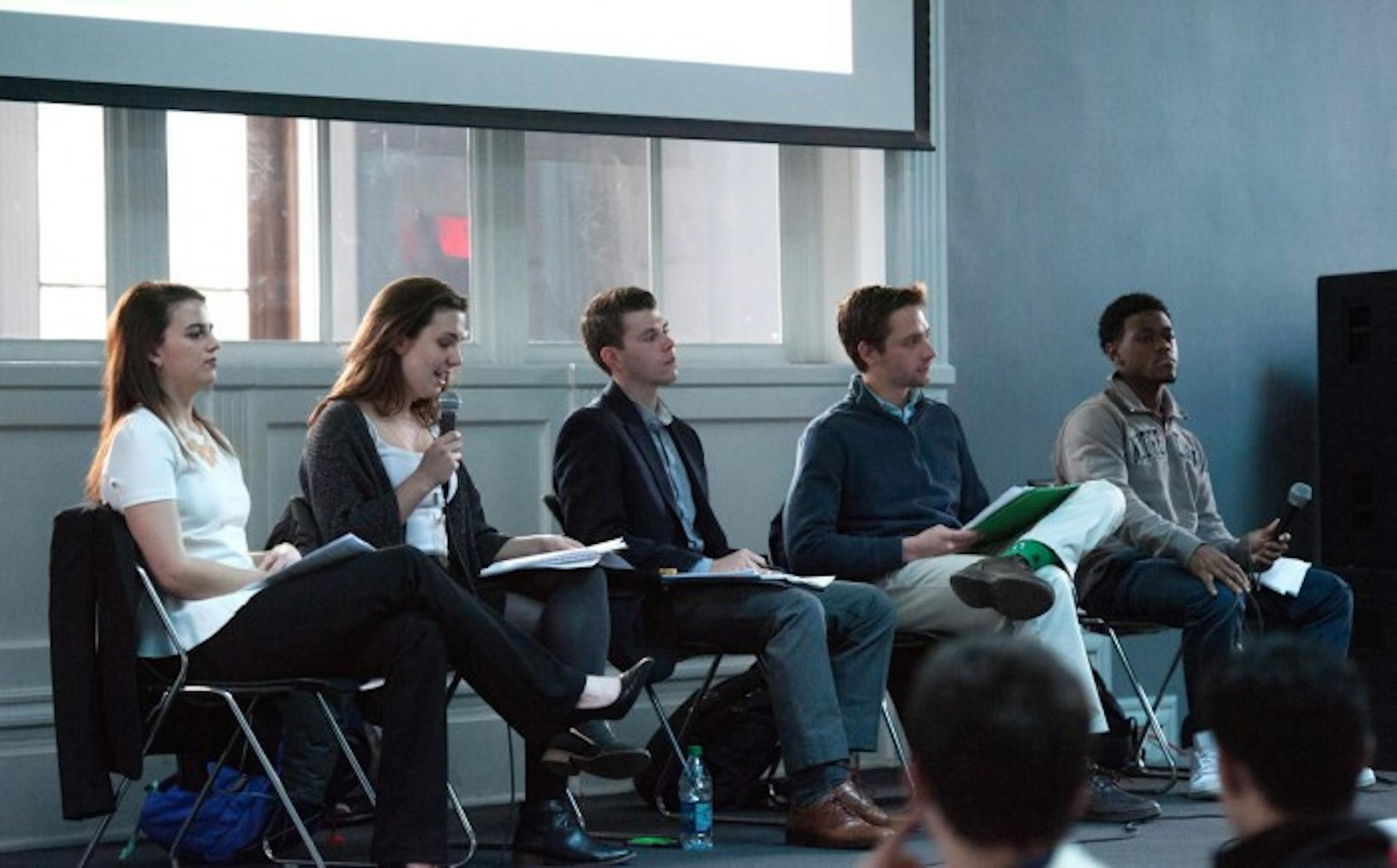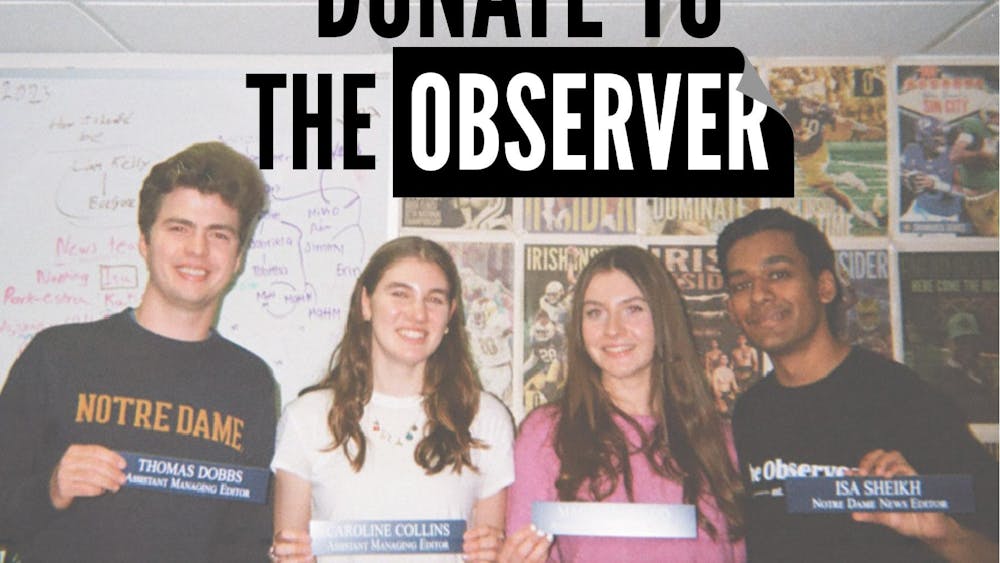Notre Dame students continued the campus-wide conversation about income inequality Tuesday night at a discussion hosted by BridgeND, featuring panelists Mimi Teixeira, Natasha Reinfenberg, Liam O'Connor, Raymond Michuda and Armani Niko Porter. (Editor's note: Each of the panelists have previously submitted columns or letters to the editor about income inequality to The Observer's Viewpoint section. BridgeND also runs a bi-weekly column in The Observer.)
Sophomore Mimi Teixeira kicked off the panel saying capitalism on its own is helpful in alleviating poverty.
“Almost two billion people have been pulled out of poverty by capitalism alone,” she said. “It is the best poverty program that the human mind has ever created.”
Teixeira said she disputes the idea that capitalism promotes the exploitation of the poor.
“The idea that people make their wealth on the backs of the poor is just not true,” she said.
The problem is poverty, not income inequality, Teixeira said.
“It’s the obvious moral imperative to take care of the poor,” she said. “Not only to take care of them, but to give them dignity and to help them out of poverty. I don’t think the solutions to income inequality do that.”
Sophomore Natasha Reifenberg said she disagrees with Teixeira’s argument.
“I do not understand how you can address poverty without addressing income inequality,” Reifenberg said.
Statistics show socioeconomic status to be a strong predictor of academic and economic success, Reifenberg said. For this reason, she said income inequality has put the poor at a significant disadvantage in chasing the American Dream.
“Income inequality violates the principles of our country,” she said. “It violates the principles of the pursuit of happiness, and it violates the principles of equality.”
Although she said she believes in capitalism, Reifenberg said she thinks it is an imperfect system that must be repaired.
“We acknowledge the positives of capitalism,” she said. “We’re not saying anything is better. What we are saying is that it is irresponsible to not address these flaws.”
Reifenberg said the idea that the richest work the hardest perpetuates inaccurate stereotypes about the poor.
“It perpetrates the belief that poor people are lazy and stupid and deserve to be poor,” Reifenberg said. “We make villains out of the poor people.”
Sophomore Armani Niko Porter said people must be careful not to write off income inequality solely because they have not experienced it themselves.
“There are those of us who have experienced income inequality and those of us who have not,” he said. “Do not forget that personal background changes the way we see everything.”
Senior Raymond Michuda said he believes government policies and regulation are at fault for income inequality, not capitalism.
“The government contributes so much to income inequality, and then they try to blame capitalism,” Michuda said.
The conversation also shifted to the role income inequality plays in paying for a college education. Michuda said he thinks college is not for everyone, so it is fine not everyone is able to attend college.
“If everybody goes to college, in a sense no one did,” Michuda said.
Reifenberg said she disagrees with this sentiment, arguing that more education can only benefit society as a whole.
“Education is not a resource that gets devalued as more people have access to it,” she said.
Because of this, Reifenberg said she believes everyone who wants a college education should have the opportunity, no matter his or her socioeconomic class.
“Education is a right, not a privilege,” she said. “College for all.”













